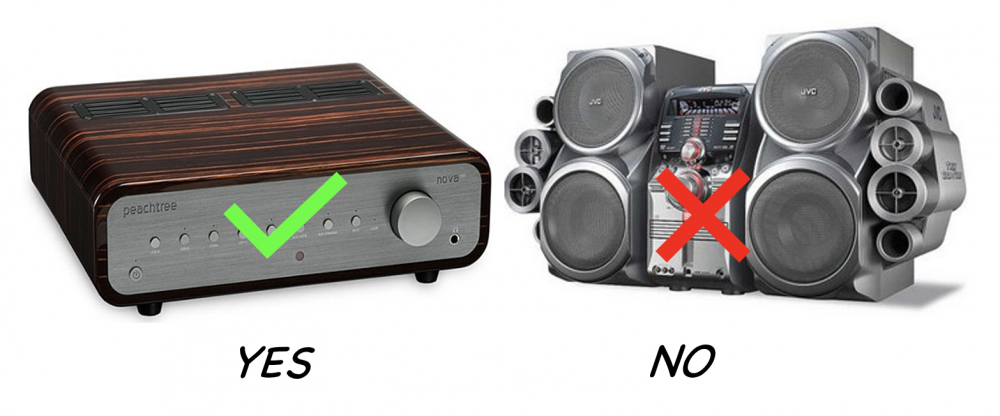Lawyer acceptance factor
|
The design of organisations and products
|
Lawyer acceptance factor
/ˈlɔːjər əkˈsɛptəns ˈfæktə/ (n.)
A UAT multiplier for a legaltech implementation computed by considering the ratio between:
- (i) Features the user wants, understand and use,
- (ii) “Features” management wants, understands, and expects her to use, and
- (iii) Things the user habitually does that the legaltech will henceforth oblige her to not do, or do in a different, more effortful or perverse way.
Hi-fi and the wife acceptance factor
In the olden days, when hi-fi envy was still a thing, spoddy anorak types would speak of the “wife appreciation factor” — the kind of attributes that would see that new pre-amplification gain-stage attenuator make it through the door without the missus hitting the roof.
Generally, an awesome total harmonic distortion rating wouldn’t cut it: it had to look nice, which meant “acceptably unobtrusive” and ideally invisible, but failing that, artfully-applied walnut veneer, a minimalist fascia and a resemblance to mid-century Danish lounge furniture would at least put you in play.
Legaltech and the lawyer acceptance factor
We mention this because the same goes, with feeling, when asking experienced lawyers to embark on a “user change journey” which has in mind a destination watched over by legaltech machines of loving grace.
They’re a stubborn, recalcitrant lot, our sibling lawyers.
The way they see it, they are already on a journey, it is tedious enough as it is, and they are not interested in being sent on some M.B.A.-initiated diversion intended to convert them into button-pushing hamsters.[1]
Contrary to received wisdom, and however proudly they may declare themselves prehistoric, as a class, lawyers are not half as Luddite as they claim. They will hoover up any tech they come across that makes them get where they think they are going faster.
Mobile email, for example, caught on so fast it barely counted as an “innovation” at all: it went from science fiction to the commonplace, skipping a phase transition, like dry ice subliming to CO2 and within six months had become something everyone whinges about.
Likewise, fax, the internet, automated document comparison, remote working, e-discovery and a host of other neat recent tricks. All water off an eagle’s back.
Workplace anthropology
But — and therefore — these are not the legaltech applications management complains about. If anything, lawyers use them too much, and the technology department will periodically engage in pitched battles with the rank and file to remove this “bloatware”: “do you really need a separate change comparison application? You know there’s one in Word, right?” — cue exasperated Kermit face — must you look at blogs,[2] cat videos and social media?
There is, yes, a paradox here. It is, as yet, a hypothesis, but has scope to graduate into a twelfth law of worker entropy:
The JC’s twelfth law of worker entropy states that the more enjoyable an application is, the less important its regular use is to management. Conversely, the more aggravating it is, the more vital is it to management that everyone uses it, all the time.
The innovations which draw sardonic clog-throwing allusions tend not make a lawyer’s life easier but, rather, duller[3] or just worse, if they are imposed to make someone else’s life easier — usually a bean counter’s.
Those that would deprive our brave legal eagle of her autonomy, or would reduce her to a form-filling, button-pushing functionary — and they are many — you should expect to take a little while longer[4] to “catch on”.
See also
References
- ↑ This is either a mixed metaphor, or a new one. Can hamsters push buttons? Would they, if they could? Who knows.
- ↑ Some of which are quite useful, amirite??
- ↑ “AI” based NDA reviewing tools do this: however dreary reviewing a confi is, it at least offers you an afternoon’s petulant pettifoggery, and few lawyers will pass that up: reviewing a machine’s attempt to review an NDA takes even that meagre degree of fun out of it.
- ↑ i.e., until the Apocalypse.
